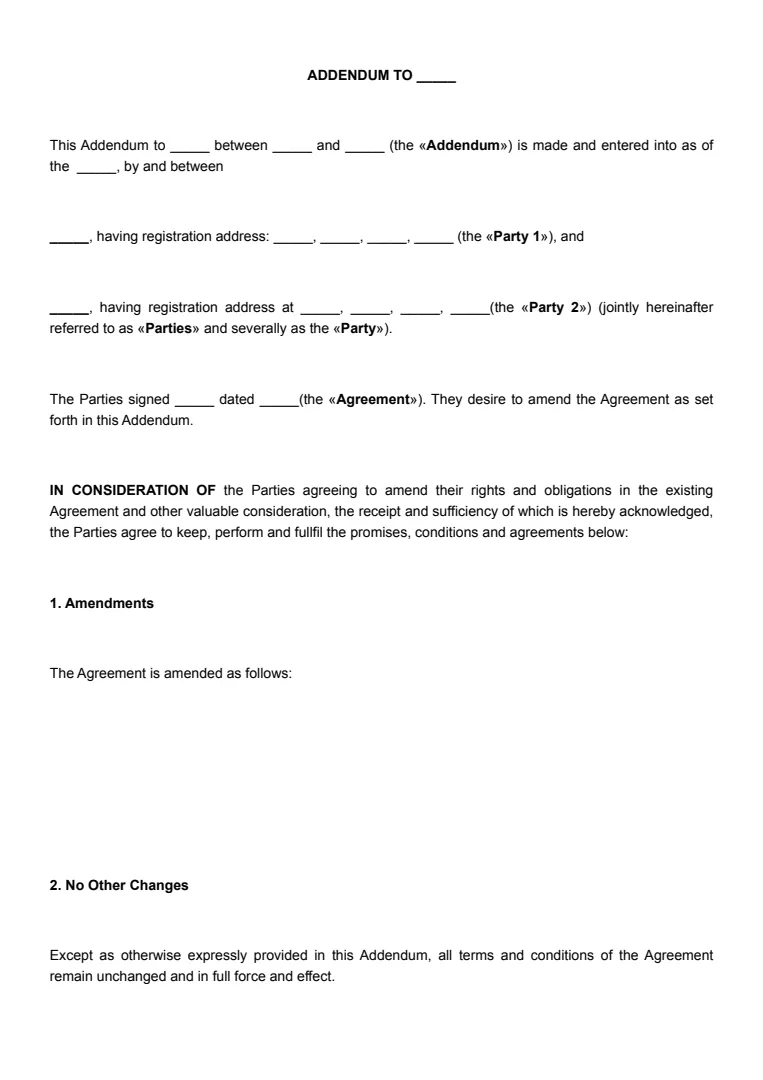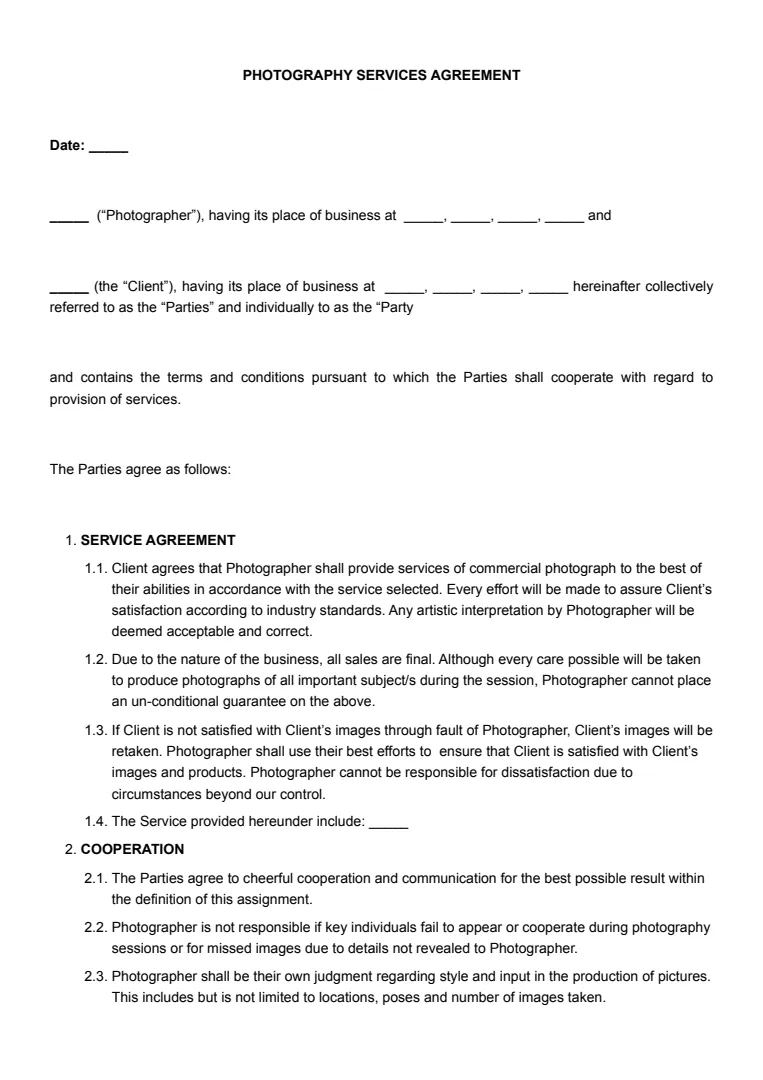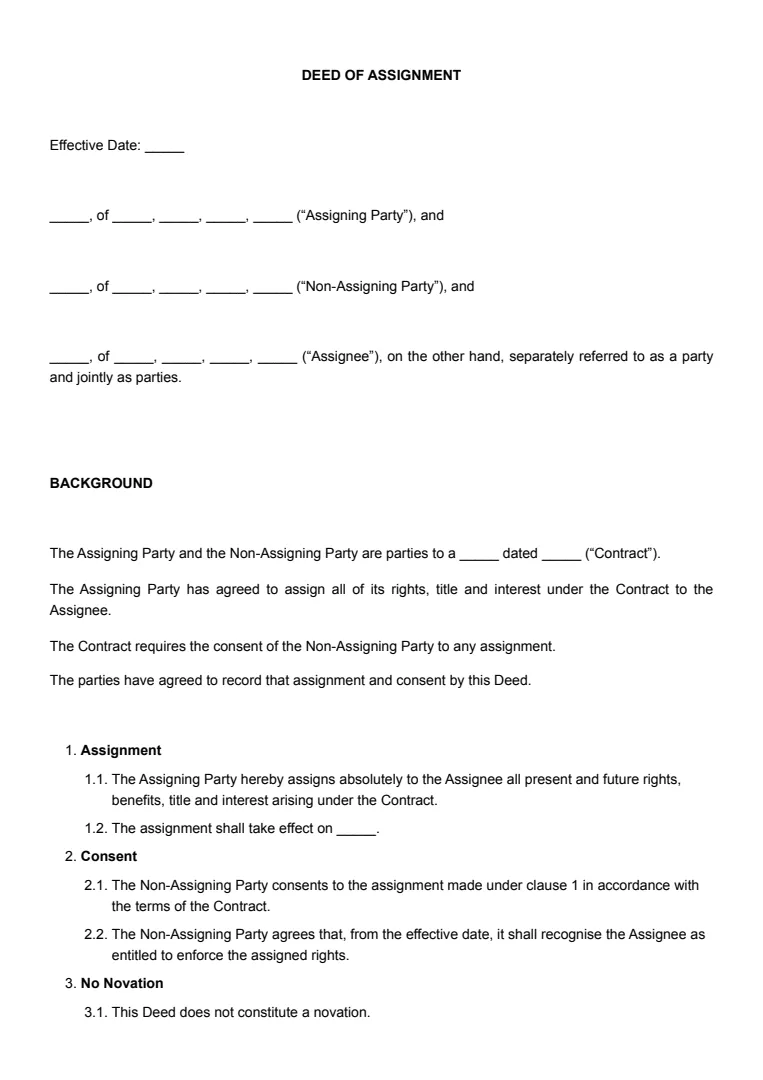What Is a Catering Contract?
A catering contract is a legally binding agreement between a catering service provider and their client that outlines the terms for preparing and serving food at an event. It specifies details such as menu items, guest numbers, service style, payment schedules, and logistical requirements.
In the UK, catering contracts operate within general contract law and must also comply with industry-specific legislation. This includes the Consumer Rights Act 2015, which requires services to be carried out with reasonable care and skill, and the Food Safety Act 1990, which enforces food hygiene standards. The UK GDPR and Data Protection Act 2018 also apply when client or guest data is collected, such as dietary preferences or contact information.
Unlike a standard service agreement, a catering contract incorporates additional clauses relating to health and safety, portion control, food sourcing, and contingency planning for unforeseen issues like power outages or supply delays.
When Should You Use a Catering Contract?
What is contract catering? This is when catering services are provided for an event in exchange for payment, regardless of size or duration. The higher the stakes, the more essential it becomes to have a catering contract.
Here are some of the main circumstances in which a catering contract is used.
1. Weddings and Private Celebrations
Large-scale personal events such as weddings, milestone birthdays, and anniversary dinners often involve multiple suppliers, strict schedules, and detailed menu planning. A catering contract ensures that the client’s vision is translated into clear, actionable commitments, from menu design and service style to specific dietary accommodations. It should address logistics such as kitchen access, serving staff ratios, and timelines for plating or buffet service.
A well-drafted contract will also plan for contingencies like guest number changes, unexpected weather affecting outdoor events, or key ingredient substitutions due to supplier shortages. For higher-end occasions, clauses can even specify plating aesthetics, wine pairings, or chef appearances, reducing the risk of mismatched expectations on the day.
Expert Tip:
“Always specify a final guest count deadline at least 14 days before the event. This gives the caterer enough time to source ingredients, schedule staff, and plan for service flow without last-minute panic.”
2. Corporate and Business Functions
Corporate catering often requires strict adherence to brand guidelines, event schedules, and professional service standards. Contracts for conferences, training days, or executive meetings should go beyond menu and delivery details to include service uniform requirements, branded packaging, or sustainability commitments like recyclable materials.
Timeliness is critical in these environments; a late lunch service during a product launch can disrupt presentations and reflect poorly on the company. A comprehensive catering contract will also address confidentiality, particularly when serving at private meetings or product reveals, ensuring caterers agree not to share sensitive information overheard or seen during the event.
3. Public Events, Festivals, and Fairs
Catering for public gatherings introduces unique challenges, from meeting local authority licensing requirements to ensuring on-site food safety. A contract for these events should cover regulatory compliance, proof of insurance, and adherence to the Food Hygiene (England) Regulations 2013.
It should also address practical details such as stall or vehicle placement, power supply needs, waste disposal, and queue management strategies to handle high-volume service. Including a clause on weather-related adaptations can be invaluable, for instance, adjusting service flow in extreme heat to maintain food safety or creating backup menus for wet conditions that affect cooking equipment.
4. Venue Partnerships
What is a contract caterer? This is a company used by venues such as hotels, conference centres, or heritage sites to provide food services. The relationship is typically ongoing and requires greater operational integration. The catering contract in these cases should clearly define exclusivity rights, commission structures, and minimum service levels to protect the venue’s reputation.
It should also outline how bookings are confirmed, the process for managing client enquiries, and any requirements for joint marketing or promotional activities. In high-demand venues, the agreement might also include a dispute resolution mechanism for booking conflicts and a clear cancellation policy to manage shared client relationships smoothly.
How to Write a Catering Contract
A strong catering contract leaves little room for assumption or misinterpretation. The more precise the language, the more effective it is in avoiding disputes.
Here’s a step-by-step guide to creating a robust catering contract.
Step 1: Identify the Parties
A catering contract should start by clearly identifying the parties involved, using full legal names and addresses. For companies, include the registered number, VAT registration number (if applicable), and registered office address.
This not only ensures the contract is enforceable but also avoids confusion if there are multiple businesses with similar names. Including a designated contact person for each side helps streamline communication and avoid delays in approvals or decision-making during the planning process. It’s also good practice to include secondary contact details to ensure urgent matters can be addressed quickly on the event day.
Step 2: Define the Scope of Services
The scope of services is the heart of the catering contract, as it sets the expectations for what will be delivered. This section should outline the menu in detail, specifying portion sizes, preparation methods, and presentation style.
If multiple menu options are offered, the contract should clarify deadlines for final selections and any tasting sessions included. Additional services, such as bar operations, table service, or event styling, should be explicitly listed to avoid scope creep. For events with complex logistics, including a service flow chart or timetable can help both parties visualise the delivery plan and ensure nothing is overlooked.
Step 3: Set Payment Terms
The payment terms section should go beyond stating the total price. It should break down the cost components, such as food, staffing, equipment hire, and transport, so both sides understand how the total was calculated. Include the deposit amount, when it is due, and whether it is refundable under certain conditions.
Specify instalment payment dates and whether the final payment is required before or after the event. If the contract allows for additional charges (e.g., extra guests, overtime, or premium ingredients), state the rate and billing process. Including a clause referencing the Late Payment of Commercial Debts (Interest) Act 1998 can help deter overdue payments and protect cash flow.
Expert Tip:
“Include a clause that outlines exactly how additional charges will be authorised. A written sign-off from the client before incurring extra costs prevents payment disputes after the event.”
Step 4: Allocate Responsibilities
Clearly defining responsibilities prevents last-minute disputes and service delays. If the client is providing certain facilities, the contract should state exactly what will be made available, from power sources to refrigeration space. If the caterer is responsible for bringing equipment, outline delivery and setup requirements, including access routes and load-in times.
For outdoor events, agree on weather protection measures, such as tents or heaters, and confirm who will supply them. This section should also address waste management responsibilities, ensuring compliance with environmental regulations and venue rules.
Step 5: Include Service Timelines
Timelines are critical in catering, where even a short delay can disrupt the entire event schedule. The contract should include not just arrival and serving times but also preparation, plating, and cleanup windows. Where events have multiple food service points, such as canapés, a main meal, and late-night snacks, list each separately.
Coordinating with other vendors, such as DJs or photographers, is easier when all parties have a clear, agreed schedule. Including buffer time between courses or service stages can help manage unexpected delays without affecting the overall event flow.
Step 6: Add Contingency and Force Majeure Clauses
Unexpected issues, from severe weather to supplier strikes, can derail even the most carefully planned event. A strong catering contract should have contingency clauses outlining alternative arrangements, such as substituting menu items or adjusting service style if a key ingredient is unavailable.
The force majeure clause should define what constitutes an unavoidable event, detail how both parties will be notified, and clarify the impact on payments or refunds. For example, in the event of a government-mandated venue closure, the contract could allow postponement without penalty within a set time frame, rather than full cancellation.
Legally.io’s free catering contract template already includes all these clauses, saving you hours of drafting and reducing the risk of missing critical protections.
What Should a Catering Contract Contain?
A well-drafted catering contract should include the following core components:
- Parties’ details – Full legal names, registered addresses, and contact details.
- Service description – Detailed menu breakdown, portion sizes, and any substitutions agreed upon.
- Guest numbers – Minimum and maximum attendance figures to manage food preparation quantities.
- Fees and expenses – Pricing structure, deposit requirements, and reimbursement rules for additional costs.
- Cancellation terms – Notice periods, refund conditions, and non-refundable costs for late cancellations.
- Health and safety compliance – Reference to relevant food hygiene regulations and proof of certifications.
Expert Tip:
“Ask the caterer for their most recent local authority inspection rating and include it in the contract. This adds an extra layer of accountability for maintaining high hygiene standards.”
- Equipment provision – Clear allocation of responsibility for catering equipment and serving tools.
- Liability limitations – Reasonable caps on damages while meeting statutory obligations.
- Data protection – Conditions for storing and handling guest data in compliance with UK GDPR.
Legal Tips for Catering Contracts
It’s a good idea to bear the following legal tips in mind when writing and issuing catering contracts.
- Be specific with menu and portion descriptions – Avoid broad terms; list exact dishes and serving sizes to avoid disputes over quality or quantity.
- Address dietary requirements upfront – Clearly outline how allergies, intolerances, and special requests will be managed, and who bears responsibility for communicating them to the kitchen.
- Align with venue policies – Check that the contract’s terms comply with venue restrictions on food, alcohol service, and waste disposal.
Expert Tip:
“Confirm with the venue whether they require specific insurance certificates or alcohol licences from the caterer. Adding these requirements to the contract avoids last-minute compliance issues.”
- Include a hygiene compliance clause – This should confirm the caterer’s adherence to the Food Hygiene (England) Regulations 2013 and any local authority requirements.
- Set realistic guest guarantees – Agree on final numbers well before the event to avoid over- or under-ordering, which can lead to financial losses.
Key Takeaways
A catering contract is a crucial safeguard for both the caterer and the client, as it sets clear expectations, defines responsibilities, and ensures legal compliance.
Without one, misunderstandings over the menu, service, or payment are more likely.
The best agreements are detailed, legally sound, and tailored to the specific event.
By using Legally.io’s well-structured, legally compliant catering contract template for the UK, you can reduce risk and increase clarity in your business dealings.















